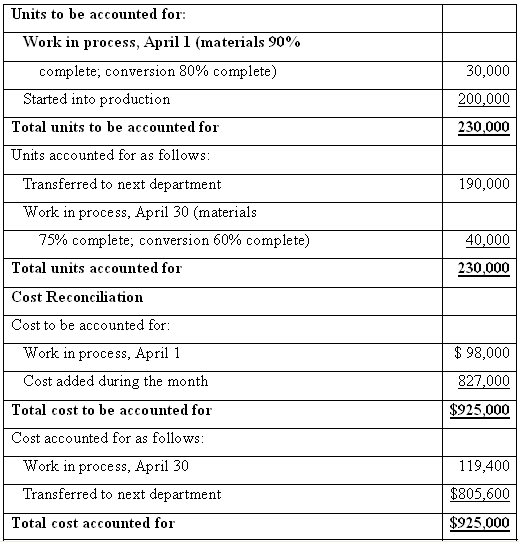Cooperative San Jos of southern Sonora State in Mexico makes a unique syrup using cane sugar and
Question:
Cooperative San José of southern Sonora State in Mexico makes a unique syrup using cane sugar and local herbs. The syrup is sold in small bottles and is prized as a flavoring for drinks and for use in desserts. The bottles are sold for $12 each. (The Mexican currency is the peso and is denoted by $.) The first stage in the production process is carried out in the Mixing Department, which removes foreign matter from the raw materials and mixes them in the proper proportions in large vats. The company uses the weighted-average method in its process costing system.
A hastily prepared report for the Mixing Department for April appears below:

Management would like some additional information about Cooperative San José’s operations.
Required:
1. What were the equivalent units for the month?
2. What were the costs per equivalent unit for the month? The beginning inventory consisted of the following costs: materials, $67,800; and conversion cost. $30,200. The costs added during the month consisted of: materials, $579,000; and conversion cost, $248,000.
3. How many of the units transferred to the next department were started and completed during the month?
4. The manager of the Mixing Department stated, “Materials prices jumped from about $2.50 per unit in March to $3 per unit in April, but due to good cost control I was able to hold our materials cost to less than $3 per Unit for the month.” Should this manager be rewarded for good cost control? Explain.
Step by Step Answer:

Managerial Accounting
ISBN: 978-0697789938
13th Edition
Authors: Ray H. Garrison, Eric W. Noreen, Peter C. Brewer





